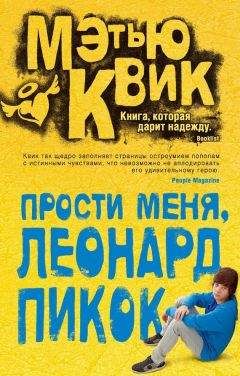Stuart Kaminsky - The Dog Who Bit a Policeman
New ornate buildings with stucco facades; massive fake cathedrals; new wrought-iron lampposts that echoed those of a century ago; and two or three floors added to old buildings and the buildings themselves remodeled and sandblasted by workmen in orange overalls. The skyline had already changed and it was due to change even more.
It was not the first time in this century that the face of Moscow had undergone a major change. Lenin, who moved the capital from St. Petersburg to Moscow, had disdained the czarist past and brought on a new era of modern architecture that was supposed to reflect the new Russia. Lenin’s Moscow was a hodgepodge of styles, and the construction was often subpar and crumbling almost before it was completed.
Stalin in the 1930s had a new vision of elaborate and impressive metro stations underground, and imposing and threatening skyscrapers and great statues aboveground. The seven skyscrapers that still tower in the skyline were a Stalin contribution. Monu-ments to who-knew-what. But Mayor Luzkov was planning what he called the “eighth tower,” a pink monster on the grounds of Moscow State University.
Then the Krushchev 1950s brought the construction that resulted in blocks of huge gray apartment buildings.
And now, not the leader of Russia or the Soviet Union, but the mayor of the city, who wanted to replace Yeltsin, had unveiled great plans, none of which would do much to change the housing problem. He planned a third ring circle; more underground park-ing-though only twenty percent of the people of Moscow have cars; a railroad running alongside the new ring road; at least two new subway stations; American-style shopping malls; a new business district called Moskva-Siti, at a cost of over eight billion in American dollars; and the world’s tallest building, the Tower of Russia, which would reach 1,950 feet into the sky.
Little if any of this construction promised much to the vast majority of Muscovites, who still lived in crumbling, poorly constructed housing. But the people of Moscow loved their mayor, and ninety percent of those who voted, voted for him.
Sasha, even through the hangover, had to admit that since the rise of the new mayor, his salary and that of city workers, and of those employees of the government who worked in the city, had come regularly. There had even been a small raise at the start of the year.
But the noise. Just a moment of respite. A brief pause. A blessed silence.
The phone rang.
“So many places,” said the woman sitting on the spotless white sofa.
She shook her head and looked down at her folded hands. At her side, a lean young man put his arm around her and said,
“Mama, he is not worth it.”
The woman was Olga Pleshkov. She was fifty-two years old, well groomed, with stylishly cut, short gray-black hair. A dozen years earlier she had been acknowledged to be one of Moscow’s great beauties and that beauty, it was generally agreed, had been more than slightly instrumental in her husband’s political rise, a rise that came in spite of the fact that he was less than sympathetic to the existing government and had only reluctantly joined the Party, an affiliation he had been one of the first to denounce when Yeltsin mounted the steps.
Knowing the police were coming, Olga Pleshkov had worn a conservative blue summer dress instead of the jeans and cotton shirt she usually wore to work in her garden. The young man at her side was Ivan Pleshkov, thirty-one, who had taken no pains to dress for the visit. He wore a wrinkled pair of tan chinos and a loose-fitting, pullover Chicago Bulls sweatshirt with cut-off arms.
They were at the Pleshkov family dacha in Manikhino, thirty miles west of Moscow. In the 1950s, small garden plots had been given to employees at the nearby MIG fighter-plane factory. With the coming of the new Russia, those with money earned through enterprise, corruption, and bribery had begun to buy these plots, tear down the small cottages, and build large homes, which brought on the envy and anger of their far less af-fluent neighbors.
Olga Pleshkov’s statement, “so many places,” had been in answer to the question from the young policeman who sat across from her. A decade ago and with nothing on her mind, Olga Pleshkov would have attempted to “cultivate” a powerfully built and good-looking blond like this. She might still be able to accomplish it, but it would be more for the challenge than the pleasure. Now, now there was Yevgeny, his ambition-and hers-and his not-very-strange disappearance.
The question had been, “Where does your husband go when he. .?”
The unfinished question from Iosef Rostnikov was, “Where does your husband go when he goes on an alcoholic bender? ”
At Iosef ’s side, sitting awkwardly erect and not knowing what the proper behavior was in this situation, was Akardy Zelach, a hulking, stoop-shouldered, and not terribly bright member of the Office of Special Investigation. Zelach’s primary virtues were his loyalty to whomever he was assigned to work with and his willingness to do whatever was asked of him, regardless of how difficult or dangerous it might be. That willingness had, on more than one occasion, almost cost him his life. Zelach’s silent hope was that he would not be asked to do anything that required great ini-tiative, creativity, or intelligence. Zelach knew his limits, and there was no question about who was in charge of this case, though Akardy Zelach had been a policeman for almost two decades and Iosef had been one for about a year. The simple truth was that Zelach did not wish to be in charge of anything and he dreaded even the very distant possibility that he might be promoted to a position of greater responsibility.
The missing Yevgeny Pleshkov was an elected member of the Russian Congress. He was one of the most articulate and outspoken defenders of Boris Yeltsin and his policies and principles.
Pleshkov was not afraid of confrontation, verbal or physical, and generally his old-guard political enemies backed away from the huge bass-voiced man with the wild gray hair. Pleshkov was a perfect spokesman and was in great demand for television interviews and public appearances and debates.
From time to time, however, like now, Pleshkov disappeared for days or weeks, even if an important debate or vote was coming in the congress.
When the other agencies of criminal investigation had made it clear that they had pursued Pleshkov in the past and emerged with neither thanks nor great success, the Yak had instantly volunteered the Office of Special Investigation to find and deliver Pleshkov before a crucial issue on the rights of foreign investment was to be voted upon. That vote was three days from now.
Rostnikov had given the job to his son and Zelach. Though he knew of the periodic flights of the bombastic member of congress, finding him didn’t appear to be a particularly difficult assignment, though it could be a delicate one. In spite of the fact that Iosef had been a policeman for so short a time, aside from his father he was the member of the office capable of projecting the most empathy for a victim or even a criminal suspect. Part of this skill was inherited. Part of it came from Iosef ’s several years as an actor after coming out of the army. None of the empathy he displayed came from the hard lessons he’d learned from being a soldier in Afghanistan, a soldier labeled a Jew and subject to the most dangerous patrols and vindictive abuse from his superiors, who knew they were losing a senseless war fought in a terrain of rocks and soil incapable of supporting even the most simple crops.
“A list of places would be helpful,” Iosef prompted. He nodded at Zelach, who pulled out his notebook and pen, ready to take down a list.
“Places,” Olga Pleshkov repeated. “I don’t know. He could be in a hotel room. He could be. . I don’t know.”
“If someone else is paying,” Ivan said, “my father would be at any of the new bars or casinos. Jacko’s, Casino Royal, Casino Metropole, the Golden Palace, B.B. King’s, Rosie O’Grady’s, the Sports Bar, or the Up amp; Down Club. He gets there after midnight and stays till dawn. Because of who he is, someone usually takes him to a room to sleep it off during the day. My father,” Ivan went on with obvious disgust, “does not become boisterous when he drinks. If you didn’t know him, he would appear to be a quiet, dignified businessman, even a respected judge, holding court with tourists, prostitutes, and Mafia bosses who have something to gain from him. My father, in short, is a disgusting drunk.”
“Ivan,” Olga Pleshkov commanded.
“How often does this happen?” asked Iosef.
“Once or twice a year,” said Olga Pleshkov.
Her son shook his head, folded his arms, and said nothing.
Iosef addressed him. “More often?”
“Increasingly,” said Ivan, ignoring the warning looks of his mother. “Perhaps four times a year, and for longer periods. My father’s liver is a miracle of heredity and evolution. It should, by all reason, be the size of a soccer ball. And yet after each bender he manages to return to his old abusive self.”
“Your father is not abusive,” Olga Pleshkov said. “He has never laid a hand on either of us.”
“There are many ways to be abusive,” said Ivan.
Iosef didn’t bother to ask for a photograph of Yevgeny Pleshkov; his picture was frequently in the newspapers and on television. In fact, Iosef had seen the large man on a news interview television show only a week ago, and had been impressed by his ability to express himself and the apparent sincerity of his words.
Depending on how the political winds blew, Pleshkov might well have a bright future in Russian politics.
“Valentin Itchak said this would be handled with suitable discretion,” Olga Pleshkov said.
“And it will be,” said Iosef, having not the slightest idea of who Valentin Itchak might be. “We will locate your husband and return him to you.”
“You won’t hurt him?” she asked.
“Hurt father?” Ivan said. “They’ll be lucky to bring him here screaming and luckier still if they don’t lose a tooth or an eye in the process.”
Akardy Zelach, who had lost much of the sight in his left eye two years earlier after being attacked from behind by a thief, winced at the prospect of a further attack.
“We won’t hurt him,” said Iosef. “I must ask one more question.
Yevgeny Pleshkov is an important man. Is it possible that there may be some reason for his disappearance other than his. . problem?”
“Like what?” asked Olga Pleshkov.
“Like he was kidnapped and possibly murdered by political enemies,” said Ivan.
His mother turned to the young man with horror in her eyes.
“No!”
“Why not?” asked Ivan with a shrug. “These are dangerous times and my father is a loud, popular man, hated and feared by many. But if you ask me, he is simply drunk somewhere.”
Though he did not particularly care for the young man in the cut-off sweatshirt, Iosef ’s inclination was to agree. Gorbachev had, before his fall, cracked down on alcoholism with little success. Now it was back and more open than ever. Russians had drunk before because it was part of their heritage, and to escape the burdens of Communist rule. Now they drank to escape the chaos of unregulated freedom. It was estimated, Iosef knew, that two hundred fifty thousand Russians were dying each year from alcohol-related causes. Yeltsin drank. Pleshkov drank and might well be dead this time or the next.
Olga Pleshkov rose, erect, handsome, clasping her hands to indicate that the policemen were excused and she would not be shaking their hands. “Please excuse me. If you have any more questions, you can ask my son. He seems to have all the answers.”
She left the room quickly and her son said, “You will have to forgive my mother. She didn’t even offer you tea or coffee. But I will do so.”
“Nyet, spahssebah,” said Iosef.
Zelach would have liked some tea and perhaps a biscuit, but he also said, “No, thank you.”
“You have more you can tell us about where we might find your father? His friends? People he drinks with, anything that might help?”
Ivan Pleshkov did not hesitate.
“There is a woman he goes to when he decides to lose a few days, a week or two. Her name is Yulia. I think her last name is Yalutshkin or Valushkin, something like that. He spends the days sleeping it off in her apartment. Also, there is an old childhood friend, Oleg Kisolev. He’s a coach of the Dynamo soccer team, used to be a player. I remember watching him. Even as a child I could tell when he visited my father that Kisolev was a pandering fool, with a good but not great kick.”
Zelach was writing carefully.
“Any address for Kisolev?” asked Iosef.
“I don’t have one. You can look in my father’s desk in there.”
“Thank you,” said Iosef. “You’ve been very helpful. Are you interested in politics too?”
“You mean,” said Ivan, “do I have a job? The answer is yes. I am a computer-program designer for the power company. I make more money than my father. I have my own apartment in Moscow.
I like girls. I do not drink and I have no political ambition. Any other questions?”
“Not now,” said Iosef, rising.
Zelach put away his notebook.
“My mother will want me to watch you go through my father’s things. We have been through this before, as you might have guessed. My mother is afraid that the police might steal something of value. I have no desire to offend you, but I hope you understand.”
“You don’t know us,” said Iosef. “No offense has been taken.”
The search of Yevgeny Pleshkov’s office yielded little of any possible use-not even a hidden bottle of vodka, not a personal telephone book, no letters. The office hardly seemed used. The search was quick, made quicker by the hovering of Ivan Pleshkov.
“You are a basketball fan?” asked Iosef, giving up on his search and looking at the young man’s shirt with a cartoonlike design of the head of an angry bull.
“Yes,” said Ivan. “It is my goal to move to Chicago and buy sea-son tickets to all the Bulls games. It is my hope that I can do this before Michael Jordan retires. Getting work as a computer-program designer will be no problem.”
“Might it not affect your father’s political ambitions were his son to move to the United States?” asked Iosef.
“I’m sure it would,” said Ivan. “I do not hate my father, but he has taught me to care little about what happens to him. I hope you find him alive, but if you don’t, my mother will cope and I will move to America that much sooner.”
Ivan walked out the door to the office, with Zelach and Iosef behind.
“Thank you for your help,” Iosef said. “We will contact your mother as soon as we find him.”
When the two detectives were outside in the morning sun, Iosef took a deep breath.
“Well, Akardy?”
“I don’t like him,” said Zelach, who did not look forward to the half-mile walk and the train ride back to Moscow.
“The father or the son?” asked Iosef.




